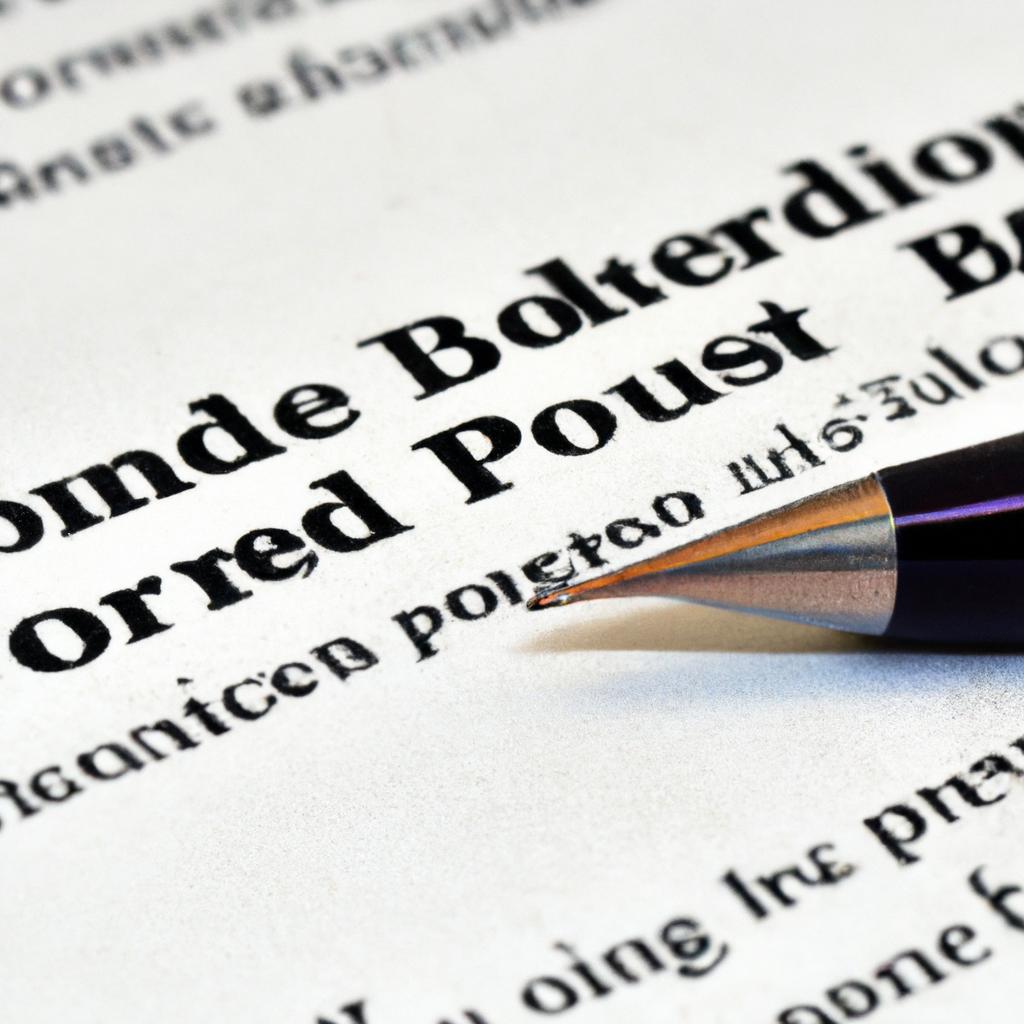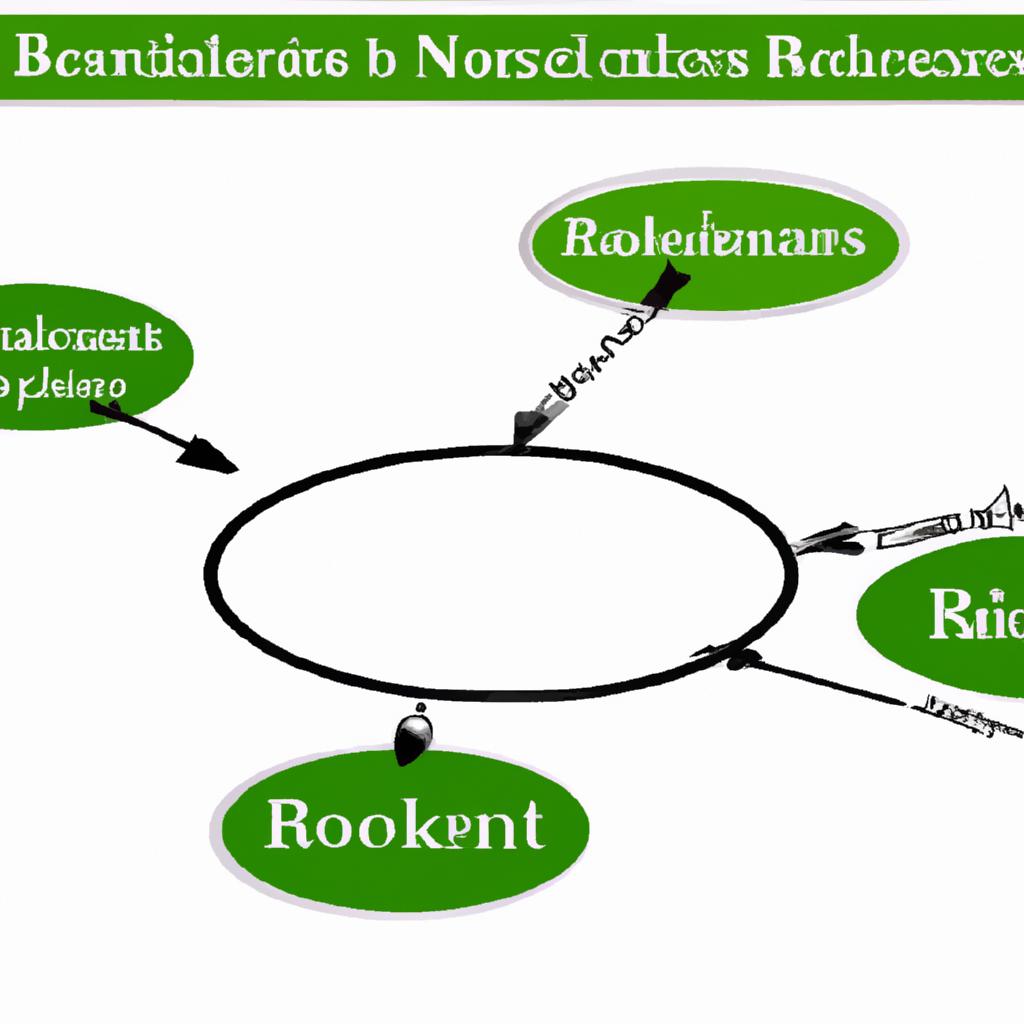In the intricate realm of probate law, where the transfer of assets and debts upon an individual’s passing can become a complex and multifaceted process, the concept of a bond plays a crucial role in safeguarding the interests of all parties involved. As seasoned attorneys at Morgan Legal Group in New York City, we specialize in navigating the nuances of estate planning, probate, elder law, Wills, and trusts, including the intricate intricacies of bonds in probate proceedings. Join us as we delve into the significance of bonds in probate and explore how they serve as a vital tool in ensuring a fair and equitable distribution of assets in the probate process.
Understanding the Purpose of a Bond in Probate Proceedings
When navigating probate proceedings, it is crucial to understand the purpose of a bond. A bond serves as a form of insurance that protects the estate and beneficiaries in case of misconduct or negligence by the executor. It ensures that the executor fulfills their duties according to the law and the wishes of the deceased. By posting a bond, the executor provides a financial guarantee that they will properly manage the estate and distribute assets in accordance with the will.
Failure to understand the significance of a bond in probate proceedings can lead to legal complications and financial losses for the estate. It is essential for all parties involved to comprehend the role of a bond and its implications. By fulfilling the requirements set forth by the court, the executor can uphold their fiduciary duty and ensure a smooth probate process for all stakeholders. Trust and transparency are key elements in probate proceedings, and a bond helps to safeguard the interests of the estate and its beneficiaries.

Factors Influencing the Requirement of a Bond
in probate proceedings can vary depending on the specific circumstances of the case. One key factor is the value of the estate involved. Generally, larger estates with significant assets are more likely to require a bond to ensure that the executor or administrator carries out their duties responsibly. Another important factor is the complexity of the estate. Estates with complex assets, multiple beneficiaries, or potential disputes among heirs may also necessitate a bond to protect the interests of the estate and its beneficiaries.
In addition to the value and complexity of the estate, the relationship between the executor or administrator and the beneficiaries can also influence the need for a bond. If there is a history of disagreements or distrust among family members, a bond may be required to provide an additional layer of protection and ensure that the estate is managed and distributed fairly. Ultimately, the decision to require a bond in probate proceedings is made by the court based on a variety of factors to safeguard the interests of all parties involved.
Management and Mitigation of Risk Associated with Bonds in Probate
When it comes to managing and mitigating risk associated with bonds in probate, there are several key strategies that can be employed to protect the interests of all parties involved. One of the most important steps is to conduct a thorough assessment of the assets and liabilities of the estate to determine the level of risk involved. This includes evaluating the value of the estate, the nature of the assets, and any outstanding debts or obligations.
Additionally, it is essential to carefully review and analyze the terms of any bonds that are required as part of the probate process. This includes understanding the obligations of the bond issuer, the conditions under which the bond may be called, and the potential consequences of default. By working with experienced legal professionals who specialize in estate planning and probate, individuals can ensure that they are taking all necessary precautions to protect their assets and minimize risk.

Recommendations for Minimizing Bond Costs and Expediting Probate Process
When dealing with probate, it is essential to consider ways to minimize bond costs and expedite the process as much as possible. One effective strategy is to create a comprehensive estate plan that clearly outlines your wishes and designates beneficiaries. This can help reduce the likelihood of disputes and challenges that could prolong the probate process. Additionally, appointing a trustworthy and reliable executor who is well-versed in probate procedures can help streamline the process.
Another important recommendation is to ensure that all necessary documents are in order and readily accessible. This includes keeping detailed records of assets, debts, and other important information that will need to be submitted during the probate process. Working closely with a knowledgeable probate attorney can also help ensure that all legal requirements are met in a timely manner, ultimately saving time and reducing costs associated with probate.
Q&A
Q: What exactly is a bond in probate?
A: A bond in probate is a financial guarantee that ensures the executor of an estate will fulfill their duties and distribute assets according to the deceased person’s wishes.
Q: Why is a bond in probate necessary?
A: A bond in probate is necessary to protect the beneficiaries of the estate from potential misconduct or negligence by the executor.
Q: How is the amount of the bond determined?
A: The amount of the bond is typically based on the value of the assets in the estate and can vary depending on state laws and the specifics of the case.
Q: Can the executor be exempt from having to obtain a bond?
A: In some cases, the deceased’s will may explicitly waive the requirement for a bond. Additionally, if all beneficiaries agree and petition the court, the bond requirement may be waived.
Q: What happens if the executor fails to fulfill their duties?
A: If the executor fails to fulfill their duties, beneficiaries can make a claim against the bond to recover any losses incurred.
Q: Are there any alternatives to obtaining a bond in probate?
A: Some states allow for alternative forms of security, such as a letter of credit or a security deposit, in place of a traditional bond.
Concluding Remarks
In conclusion, understanding the intricacies of bond in probate is crucial for anyone navigating the legal process of handling a loved one’s estate. By having a grasp on the requirements and implications of bond, individuals can better ensure that the estate is managed responsibly and in accordance with the law. Whether you are a beneficiary, executor, or potential heir, being informed about bond in probate can lead to a smoother and more efficient administration of the estate. Remember, seeking the guidance of a knowledgeable attorney can provide you with the expertise you need to successfully navigate this complex area of law. So, as you embark on this important journey, may you approach it with confidence and clarity, and may the bond in probate serve as a tool for justice and protection for all parties involved.

